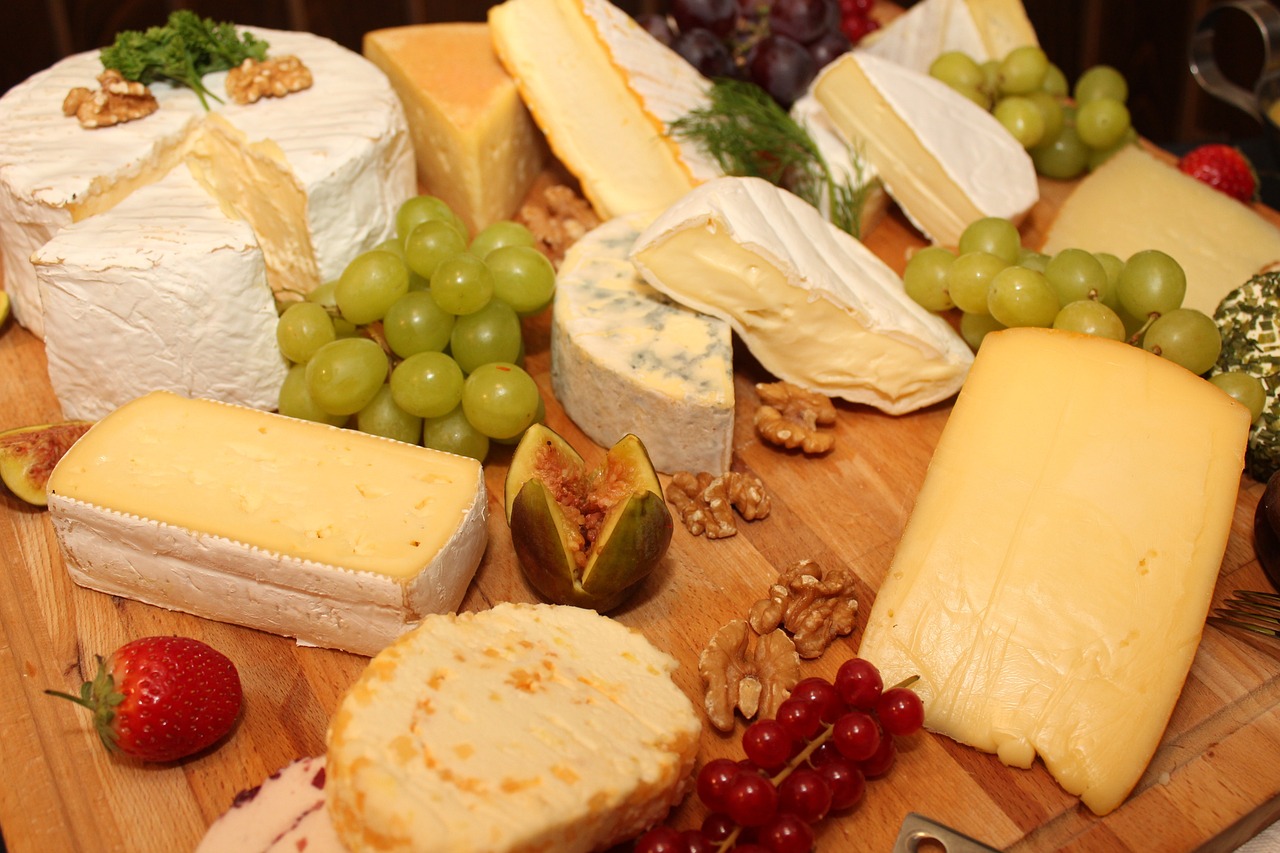Cheese as a food product produces large amounts of carbon emissions. Most of the emissions in cheese production comes from the burps of cows. The way cows digest food mean that they produce methane, which is a greenhouse gas which contributes to global warming. Climate change scientists, such as Professor Bernes-Lee, argue cheese should be treated as a meat, when we are reducing the carbon footprint of our diet. But if you are a cheese lover and you find it hard to leave it out of your diet, how can you make choices to reduce the impact of cheese in your diet? Here are a few ideas to reduce the impact of cheese.
Hard cheese versus soft cheese
An easy way to reduce your carbon footprint of eating cheese is to choose soft cheese over hard cheese. Usually, soft cheese needs less milk than hard cheeses. Data from Mike Bernes-Lee (2020) compares the carbon footprint of six popular cheeses:
| Type of cheese | Litres of milk required for 1kg of cheese | Total footprint (CO2e/kg) |
| Cottage | 5 | 6.5 |
| Brie | 7 | 8.8 |
| Mozzerella | 9 | 10.8 |
| Cheddar | 10 | 11.8 |
| Parmesan | 16 | 18.6 |
| Ricotta | 20 | 22.4 |
As you can see from the table, soft cheese such as mozzarella, brie and cottage cheese has less milk than hard cheese, such as cheddar cheese and parmesan. Ricotta is one exception to the rule, which required the most milk.
Vegan cheeses
Vegan cheeses are oil based and do not contain milk. In comparison to real cheese, it produces ten times less carbon emissions. This is a good substitute for real cheese and the range of choices are growing all the time.
Reduce the quantity of cheese in a meal
Another way to reduce to carbon emissions of cheese is not to eat too much of it. It is fine to have a cheese sandwich or a jacket potato with cheese. The problem how much cheese you put on it. If you have a sandwich with just one slice of cheese and other fillings, carbon emissions of the sandwich will not be that high.
Why cheese from other animals does not change things
You may think that cheese from other animals, such as goats and sheep may have lower carbon emissions than cow’s cheese. But data suggests their cheese causes a similar amount of emissions as cow’s cheese because of the way they digest food and produce methane, a greenhouse gas that contributes to global warming.
Source: ‘How bad are bananas?’ by Professor Mike Bernes-Lee

Leave a Reply